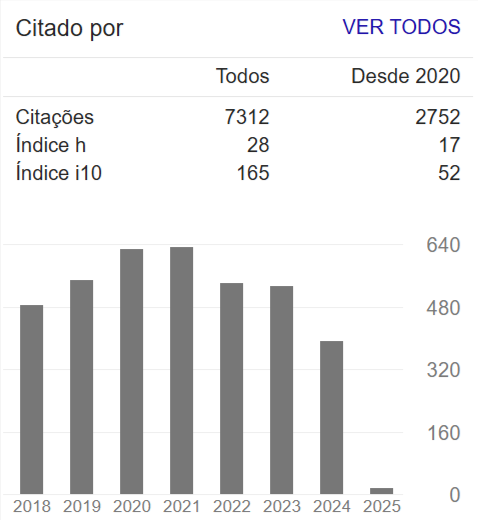Operating conditions of reservoirs in indirect water supply systems: Case study in a University Campus
Abstract
The good operational conditions of the reservoirs are essential for maintaining the water quality for human consumption. A check-list was applied to examine the reservoir park, on a university campus. The list was based on Brazilian standards for the construction and operation of reservoirs and the legislation for water quality requirements for human consumption. The park was inspected and their operating conditions were evaluated. The results showed that, at the time of the inspections, not all reservoirs met the standards and recommendations established by NBR 5626/98 (ABNT, 1998), as well wen't fully complied with other existing laws and regulations.The adversities encountered translate into several levels of complexity, from the simplest ones, which requires few resouces, to more complex problems that may be the result of imprecisions in the project or failures in execution, or even wear and tear caused by the use and lack of maintenance. These problems demand strain for solution and require larger investments. In view of this scenario, interventions are needed to improve the operational and maintenance conditions of the reservoir park, in order to meet the requirements of the Brazilian regulations, in special the NBR 5626/98 and the Portaria da Consolidação N°5, anexo XX.

















